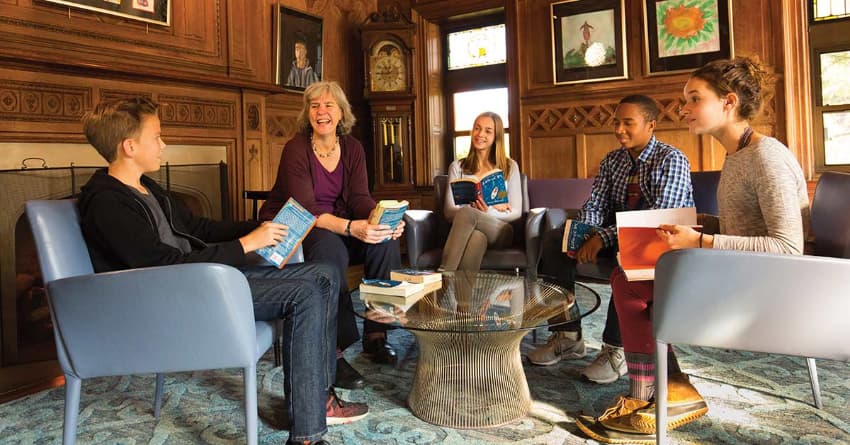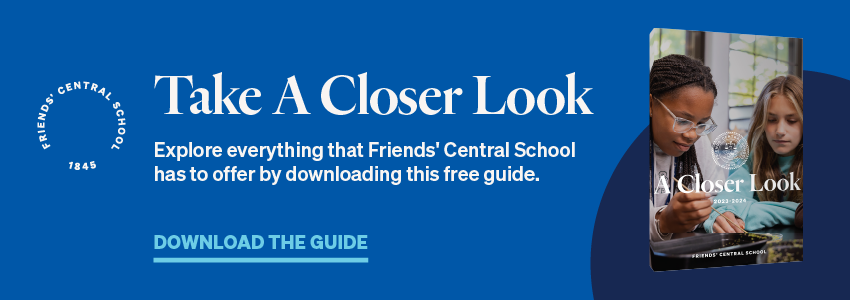
When it comes to selecting a school for your child, there are a lot of factors to consider. Should my child attend a public school, or an independent school? What are the pros of my child attending a private school? What are the cons?
These are all questions worth asking. To help you decide whether or not a private or independent school is the right fit for your child, we've gathered together this list of pros and cons for you to consider while making a decision about your child's education.
Free Downloadable Guide: Take a Closer Look at Friends' Central School
The Pros:
- Smaller Class Sizes: Independent school and private school classrooms typically have a much lower student-to-teacher ratio than public schools, where resources are stretched. This enables more one-on-one education and guidance, bolstering student performance and offering a strong support network.
- Choice of Curriculum: Because independent schools are not limited by state guidelines when it comes to creating student curriculum, they can offer courses that may not be available to students attending public schools. These courses may differ by focus or by placement level.
- Breadth of Extracurricular Activities: Independent schools often offer a wide range of sports, clubs, and extracurricular activities that aren't found in a public school environment due to policy or a lack of funding.
- Religious Education is Available: By law, religious activities are excluded from public school education. If a religious education for your child is important to you, then you will need to turn to an independent school.
- A Fresh Start: If your child has had a negative experience in the public school system such as bullying, making the transition to a independent school can help them have a fresh start.
The Cons:
- Tuition Considerations: Lower student-to-teacher ratios come at a cost—namely, tuition. While a public school education is paid for with tax dollars, a private or independent school education must be paid for by parents out of pocket. Most independent schools will offer at least some form of financial assistance to lessen the burden of tuition costs.
- Added Logistics: Enrolling your child in an independent school introduces a number of logistics that you would not necessarily need to concern yourself with had your child attended a public school. Chief among these are transportation: How will your child get to and from school? It is a common misconception that bus transportation is not an option at independent schools—but this is not the case. At Friends' Central, we offer multiple transportation options for families living within a ten-mile radius, which includes the Center City District of Philadelphia.
- Leaving Friends Behind: Transitioning from the public school system to an independent school likely means that your child will say goodbye to a number of friends. This is of course a stressful situation for anyone—children included—and is not something that should be overlooked. Fortunately there are multiple strategies for handling these situations as a parent. Many parents and their children find that independent schools offer a much more welcoming and diverse student population than their previous school.
As you can see, there are strong advantages to an independent school education for children, but there are also some noteworthy considerations that you should think through prior to applying. Only you can decide whether an independent school education is the right fit for your child, based on the needs of your child and your family situation.
If you would like to learn more about the specific components that make a Friends' Central education special, we encourage you to download our guide A Closer Look, which details the weekly schedules, service opportunities, clubs, and athletics available to our Lower, Middle, and Upper School students so that you can better understand if Friends' Central School is a good fit for your child.



